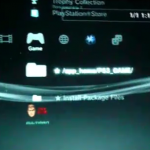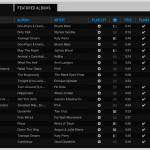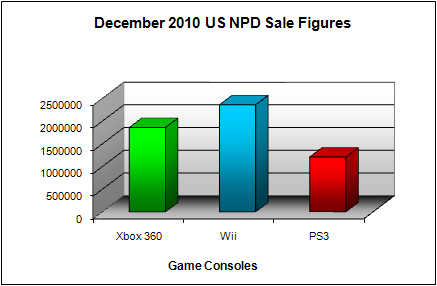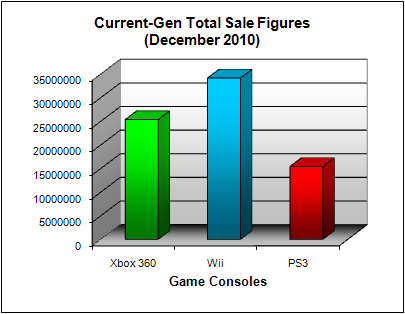It looks like my pathetic begging last week paid off, sort of, as I managed to get a few likes on Digital Digest’s Facebook page, and a few more on Twitter. All those that participated will be noted, and when the competition launches next week or the week after, you shall all be rewarded handsomely (with better chances at winning)!
The current set up means every news article posted on the Digital Digest website, plus every blog and posts in the deals & freebies section, will all be added to the feeds, allowing for an easy way to get notified of updates on the websites. And occasionally, I will post a few things that aren’t really big enough to make the news, but are nonetheless interesting. One thing I did post about was my first attempt at an Android app, a game based on a paper based game based on video games based a movie. Paper (Star) Wars is my take on a paper based Star Wars game that I used to play with friends in middle school. It’s my first app, so please be kind and tolerant of the numerous bugs within the game. There’s a free “Not Very Special Edition” and a paid for version for around a buck, depending on exchange rates.
Self promotion finished, time for this week’s news, and there’s plenty to go through so let’s get started.
 Let’s start the copyright news, the UK may have seen a change of government, the non violent kind, but its anti-piracy policies remains unchanged it seems. Their proposed three-strikes system, which will first start with a warning-but-no-action system, is set to be introduced, and UK ISPs will have to pay 25% of the cost of enforcing this law which will see private subscriber data being given to copyright holders.
Let’s start the copyright news, the UK may have seen a change of government, the non violent kind, but its anti-piracy policies remains unchanged it seems. Their proposed three-strikes system, which will first start with a warning-but-no-action system, is set to be introduced, and UK ISPs will have to pay 25% of the cost of enforcing this law which will see private subscriber data being given to copyright holders.
In other words, the UK government thinks that ISPs are at least 25% responsible for anti-piracy policing on the net, even though they don’t receive any benefits from it at all if this thing works (and the UK government optimistically thinks that it will reduce online piracy by 50% – amazing!). So it seems ISPs have been cast as a guilty party. But ISPs will no doubt pass on the cost to subscribers. So it seems, we’re all being cast as the guilty party. And with higher ISP costs, and so less money to spend online, and when people start getting booted off the Internet, all of these actions which will no doubt affect the Internet economy, most likely the legitimate kind. Pirates will be pirates, and they will find (and have found) ways around being monitored, so I would really like to see how the UK government comes up with the figure of £200m as the amount of benefits that will result from this. They would be lucky to get away with less than £200m of damages to the economy. But this whole thing has become an ideological crusade, so common sense went out the window ages ago.
The new UK law should come into affect as anti-piracy law firms in the UK might be starting to wrap up their profit seeking mass lawsuit enterprises, when the head of one of the most notorious anti-piracy law firms, ACS:Law, said in court that his firm was no longer involved in anti-piracy stuff due to “death threats and bomb threats”, amongst other things (no longer profitable?). Not to condone threats of this kind, which is totally unacceptable despite the number of people ACS:Law has pissed off in recent times, but that’s the side effect of the kind of business ACS:Law is involved in, just as its predecessor Davenport Lyons realised when they also quit the game. And they were in court because the judge found their lawsuit somewhat dubious and wanted to examine it further, despite ACS:Law’s attempt to drop the lawsuits against the downloaders in question, in a last ditch attempt to avoid having any kind of court ruling on the matter (because it could go either way, and it looks like it’s going the wrong way for ACS:Law). The best way to go after these law firms is to take a leaf out of the entertainment lobby’s latest doctrine on online anti-piracy: go after their revenue source. If no profit can be made via mass lawsuits, because perhaps it’s difficult to ascertain jurisdiction or that people are fighting back by tying up these law firms in paper work, then these kinds of law suits will stop.

Google is the net's new piracy cop
But these lawsuits are still gaining popularity in the US, where this week, hundreds more were sued for download the Paris Hilton sex tapes. I wonder if Paris Hilton gets a percentage of the settlement fees, and if she does, then that’s one more reason to fight these lawsuits as tenaciously as possible. And people seeking to download this “movie” illegally be warned – the publishers, XPAYS, is still monitoring download networks for potential targets. But finding a torrent of this film may have just gotten about 1.5% harder, thanks to Google’s new filtering scheme which became active this week, something they warned us would happen back in December. It’s no doubt Google’s way to try and appease the entertainment industry, not that they would be pleased much by this, since only the suggested search phrases as part of auto-complete and instant search have been filtered – the results are still the same as before. And the way Google has did it was full of inconsistencies, like why a BitTorrent client software like uTorrent needs to be filtered at all (and yet, other popular clients like BitComet or Vuze are not filtered), or why RapidShare is filtered, but not MediaFire. In any case, this latest move by Google sets a very dangerous precedent, and goes completely against the Mountain View company’s principles on the open web. And as mentioned before, it will do little to appease the entertainment industry and instead, it will just make them ask the question “if you can filter recommended search phrases, why can’t you also filter out the results”. An appeasement of groups backed by a Fascist launched organization, yeah that doesn’t sound familiar at all. Maybe it’s just me, but has Google abandoned their “do no evil” policy, since they’re very much acting like just any other corporation these days. Even their recent withdrawal of support for H.264 in Chrome was very much an exercise in protecting self-interests (dropping H.264 so people will have to adopt their own WebM, for example), as opposed to their stated goal of supporting open software – this is the very same company that bundles Adobe Flash with the same browser in question, so it’s a bit rich for them to lecture other on support of open platforms.
For all of the entertainment industry’s pomp and bluster, they still haven’t even managed to close down The Pirate Bay. They talk big about closing down a lot of websites, another 50 this week apparently, but they don’t dare mention how many new websites spring up the second they close down one, fairly obscure, torrent indexer. And if The Pirate Bay people are to be believed, the RIAA are in for a rude awakening when TPB launches its music sharing service in a few months time. No details as yet, or even confirmation as to whether this thing is real or not, but a TPB insider has promised that this thing will scare the pants off the RIAA. It’s set to be launched around the 78th birthday of the International Federation of the Phonographic Industry, and I thought it was interesting that this organization was launched by none other than Mussolini in 1933 (yes, that Mussolini). So when old Benito said that “Fascism should more properly be called corporatism because it is the merger of state and corporate power,” he wasn’t that far off the mark it seems (ignoring the fact that he was talking about a totally different kind of “corporate” to today’s corporations).
And in potential silly DRM news of the week, how about DRM’d web images? Not quite, but it only takes a little bit of effort to turn this thing into the online newspaper’s favourite new toy, as expiring image links is quite effective at cutting down hot linking. Of course, those that really do want to steal your pics will just do so via a print-screen, while you make your legitimate visitors download and install plug-in after plug-in just to view the damn image. A totally ineffective DRM which only makes the life of legitimate users that much more painful. So definitely happening, then.

Onto HD/3D news, price of Blu-ray players are tipped to drop below $40 in 2011. Not that surprising when you consider that it’s been available for around $50 already.
But this does mean one thing: if you don’t have a Blu-ray player now, you may just not want or need one. They’re so cheap now, when they’re not being given away freely with TV purchases, that there really aren’t any other excuses left for people not to have one. And with retailers often discounting Blu-ray/combo versions of movies below the price of DVD sets, it’s a no brainer. And so much for the higher premiums manufacturers had hoped that Blu-ray hardware (and movies) would bring on a more permanent basis.
So if plain old Blu-ray isn’t helping to bring in higher premiums, perhaps the 3D kind will. And when manufacturers and studios are not trying to kill the format by signing excruciatingly long exclusivity deals (I’m looking at you, Panasonic and Fox) on titles that will launch the format, there’s also the issue that many people just can’t stand watching 3D. I think I’m one of these people, since watching 3D for more than half an hour makes me uncomfortable, and watching something like Avatar all the way through would probably kill me (or at least make me very very sick). But I did still buy a 3D TV, and I’ve definitely paid more money for even less interesting gimmicks before. Expect all TVs to have 3D support by the end of the year though, and competition will ensure the higher premiums will be gone by then too.
And going back to the Chrome/H.264 decision I referred to above, there’s a new service that aims to end the problem of cross-browser compatibility for uploaded web videos. Vid.ly takes in your videos and then transcode them millions of times (or just a dozen times, I don’t know) so that it will work on any browser, regardless of whether it took the very corporate decision to back one of its own, albeit open, video standards, or whether it’s backing a video standard that it owns a lot of patent on. And the same for mobile videos, iOS, Android, Blackberry. I fed the service my recently uploaded Transformers: Dark of the Moon HD 1080p Trailer. Vid.ly ate it up, and spat out a link half an hour later, and I’ve put the sample embed video and mobile video links in this forum thread. For no other reason, it’s a great way to compare the various qualities of web video standards, H.264 vs WebM vs Theora, as the same embed code automatically detects what software you’re using and gives you the compatible stream (it looks by far the worst on Firefox at the moment, as it uses Ogg Theora). Anyway, an interesting service that may bypass the whole very confusing, and annoying, HTML5 format wars.
![]()
And last but not least, in gaming, Sony has reacted to the hacked 3.55 firmware by releasing the 3.65 firmware. And it was hacked within hours. Stable. Doors. Horse. Bolted.
Sony did have better success in the courts, with the judge granting a temporary injunction against, I don’t know what, geohot’s firmware or something. Because a temporary injunction on fail0verflow’s research into pointing out the security flaw on the PS3, doesn’t seem to make much sense, as it’s now common knowledge that Sony doesn’t know the difference between a constant and a randomly generated number.
But Sony are at their best when they show off cool stuff, as opposed to trying all sorts of anti-piracy measures, and they did impress a lot of people and refocus people’s thoughts away from the PS3 security disaster, by revealing the NGP – the Next Generation Portable – the successor to the ailing (some would argue, dead and buried) PSP. It does seem pretty cool, all the best features from phones (Wi-Fi, GPS, multiple cameras, multi-touch), a kick-ass processor that can run PS3 games, albeit at the reduced resolution of the still kick-ass OLED screen (960×544). Still, it faces stiff competition from smartphones, the 3DS and tablets, all vying for a share of the portable gaming market these days (although Sony has promised a common development platform for its Android phones and the NGP, so we know at least Angry Birds will be on the NGP). Nobody knows what the price of the NGP will be, but with so much tech inside, it can’t be cheap, or can’t be cheaper than the 3DS, right?
Speaking of the 3DS, yes, it will have region-control, and downloaded games won’t be transferable to another console, at least not at first.
And so that’s it for another week. Have a good one and see you at the same time, same place, in 7 days.
















